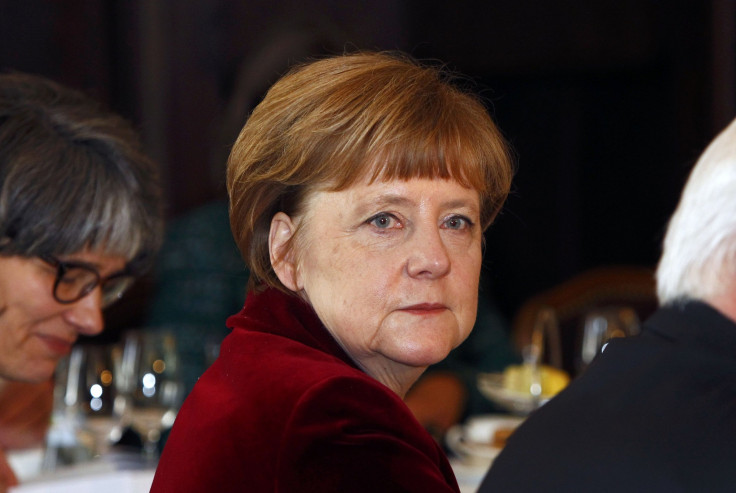Amid Russian Hostility, Germany Bucks European Trend, Increases Defense Spending

The German government has approved a draft plan to increase its defense budget by 6.2 percent over the next five years. The biggest economic power in Europe is spending an additional $8.5 billion on its military, in direct response to what the defense budget calls the country’s “widening NATO role.” The decision comes as increasing Russian hostility faces NATO with its biggest challenge in Europe since the end of the Cold War, and as the threat of terrorism also increases, noted the newly released draft budget.
That increase amounts to around a $1.3 billion a year, or a 1.24 percent increase to the year-on-year budget, making the increase actually smaller than the country’s economic growth rate of 1.6 percent in 2014.
Germany currently spends 1.2 percent of GDP on defense, about $36.1 billion and less than the NATO-recommended 2 percent. However, few countries in the 28-member alliance actually meet that target. Only the United States, Estonia, Greece and the United Kingdom hit the 2 percent threshold in 2014.
Most of Germany’s fellow alliance members are not following suit. Of the other NATO countries, Latvia, Lithuania, the Netherlands, Norway, Poland and Romania will be the only countries to increase spending this year -- and they will still be under the 2 percent threshold. Bulgaria, Canada, Hungary, Italy and the U.K. are all cutting back.
France, another large European economy, has frozen its defense spending at 1.5 percent, despite its continuing campaign of airstrikes against the Islamic State group. The remaining members of the alliance are not significantly changing their defense budgets from 2014 levels.
These continentwide cuts make Germany’s modest increase highly significant. Jim Dobbins, former U.S. ambassador to the European Community, the EU's predecessor, said the increase was an example of an “emergence of German leadership across the board. This is a significant move and a significant signal to the other major powers in Europe."
Germany had previously decided to marginally cut its defense budget in 2015 by around $820 million. But the emergence of an increasingly hostile Russia since then, with the annexation of Crimea in March last year and the continued assistance that it offers pro-Russia rebels in the East Ukraine war, the decision has been reversed.
While the increase is only minor, "it’s better than cutting in absolute terms, which is what the British are doing,” Dobbins said.
The U.K. government, which allocated 2.07 percent of GDP to defense in 2014, said it will not dip below the 2 percent level while the current Conservative government is in power. However, according to a Royal United Services Institute study, the U.K. actually dropped to 1.88 percent in 2015.
The highest ranking general in the U.S. Army has criticized the U.K.'s cutbacks saying the U.S. will have to adjust training programs to ensure it can still work with the British. "I would be lying to you if I did not say that I am very concerned about the GDP investment in the U.K.,” U.S. Chief of Staff General Raymond Odierno told the BBC in March. "In the past we would have a British army division working alongside an American division. Now it might be a British brigade inside an American division, or even a British battalion inside an American brigade.”
While a majority of the German defense budget increase will be spent on actual defense, an element of the increase will go to anti-terror operations in Germany, designed to combat the potential issues stemming from the 320 Germans who already have joined the Islamic State group and may return to Germany. "Officers have to adjust to the threat of multiple attacks from small groups, radicalized individuals, as well as from experienced fighters with advanced weaponry," German Interior Minister Thomas de Maizière told reporters in Paris last week. "They need to be better equipped."
© Copyright IBTimes 2024. All rights reserved.






















